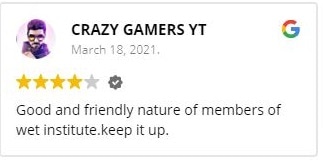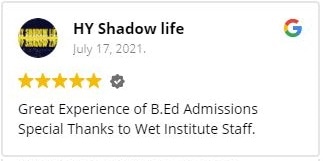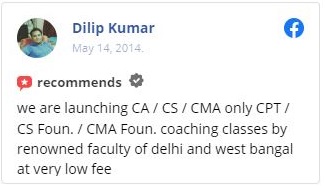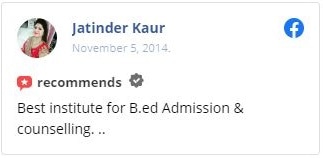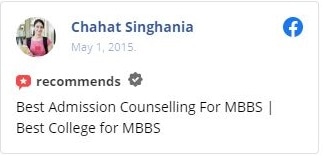Post Basic B.Sc. Nursing Admission Process
Admission process for the Post Basic B.Sc. Nursing (PB-B.Sc.) course in the best colleges in India for the 2025-2026 academic year: Eligibility Criteria, Scope, Syllabus, Fees, Duration and Career Opportunities
Post Basic B.Sc. Nursing (PB-B.Sc.) Course: Overview
Key Features of the Course
Duration:
- The PB-B.Sc. Nursing course typically lasts for 2 years, focusing on both theoretical knowledge and practical training.
Eligibility:
- Candidates must hold a diploma in nursing (GNM or equivalent) and be a registered nurse with a valid nursing council registration.
- Candidates usually need to have completed their 10+2 education, with a focus on science
Curriculum:
- Community Health Nursing
- Medical-Surgical Nursing
- Maternal and Child Health Nursing
- Mental Health Nursing
- Research and Statistics in Nursing
- Nursing Administration and Leadership
Practical Training:
- The course includes hands-on clinical practice, allowing students to apply their knowledge in real-world healthcare settings. This training is crucial for developing advanced nursing skills.
Career Advancement:
- Completing the PB-B.Sc. Nursing program opens up various career opportunities, including roles in clinical settings, education, research, and nursing administration.
Global Opportunities:
- The degree is recognized internationally, providing graduates with the opportunity to work abroad in various healthcare settings.
Importance of the PB-B.Sc. Nursing Course
- Skill Enhancement: The program is designed to refine existing nursing skills and introduce new concepts, preparing nurses for advanced roles in patient care and healthcare management.
- Leadership and Management: The course includes training in leadership and administration, equipping nurses to take on managerial positions in healthcare facilities.
Post Basic B.Sc. Nursing (PB-B.Sc.) Course: Eligibility Criteria
To enroll in the Post Basic Bachelor of Science in Nursing (PB-B.Sc.) program, candidates must meet specific eligibility requirements. These criteria ensure that applicants have the necessary background and qualifications to succeed in the advanced nursing curriculum. Below are the common eligibility criteria:
1. Educational Qualification
- Diploma in Nursing: Candidates must possess a Diploma in General Nursing and Midwifery (GNM) or an equivalent qualification from a recognized institution.
- 10+2 Education: Applicants should have completed their higher secondary education (10+2) with a focus on Science, preferably with subjects like Biology, Physics, and Chemistry.
2. Registration requirement
- Nursing Registration: Candidates must be registered with the respective State Nursing Council or a relevant nursing body. A valid registration certificate is typically required at the time of admission.
3. Minimum Age Limit
- Candidates should generally be at least 17 years of age at the time of admission. Some institutions may have specific age restrictions, so it’s advisable to verify individual requirements.
4. Work experience
- Some institutions may prefer or require candidates to have a certain amount of clinical experience or work experience in nursing, usually ranging from 6 months to 1 year.
5. Physical and Medical Fitness
- A medical fitness certificate may be required to ensure that candidates are physically capable of handling the demands of the nursing profession.
Post Basic B.Sc. Nursing (PB-B.Sc.) Course: Admission Process for 2025
The admission process for the Post Basic Bachelor of Science in Nursing (PB-B.Sc.) course in 2025 typically involves several key steps. While specific procedures may vary by institution.
1. Research and Selection
- Identify Institutions: Research colleges and universities offering the PB-B.Sc. Nursing program. Consider factors such as course curriculum, faculty, infrastructure, and placement opportunities.
2. Application Form
- Complete the Form: Fill out the application form accurately with your personal and academic details.
3. Document Submission
- 10+2 mark sheets and certificates
- Nursing council registration certificate
- Identity proof (such as Aadhar card or passport)
- Passport-sized photographs
- Medical fitness certificate
4. Entrance Examination
- Entrance Exam: Some institutions may conduct entrance examinations to assess candidates’ knowledge and skills relevant to nursing. Check if an entrance exam is required for your chosen institution.
6. Merit List
- Result Announcement: After evaluating entrance exam scores and interviews (if applicable), institutions typically publish a merit list of selected candidates. This list may be available on the institution’s website or communicated directly to candidates.
7. Document Verification
- Verification Process: Candidates who are selected must undergo a document verification process, where original documents are checked against submitted copies.
8. Fee Payment
- Admission Fee: Once document verification is complete, candidates will need to pay the admission fee to secure their seat in the program. Details regarding payment methods and deadlines will be provided by the institution.
Conclusion
The admission process for the Post Basic B.Sc. Nursing (PB-B.Sc.) course in 2025 involves multiple steps aimed at ensuring candidates are well-prepared for advanced nursing education.
Post Basic B.Sc. Nursing (PB-B.Sc.) Course: Syllabus
Year 1
Nursing Foundation
- Principles and practices of nursing
- Nursing theories and models
- Legal and ethical aspects of nursing
Advanced Medical-Surgical Nursing
- Comprehensive care of patients with medical and surgical conditions
- Management of critical care patients
- Nursing interventions and protocols
Maternal and Child Health Nursing
- Care during pregnancy, childbirth, and postpartum
- Neonatal care and pediatric nursing
- Family health education
Community Health Nursing
- Public health principles and community nursing
- Health promotion and disease prevention
- Community assessment and intervention strategies
Mental Health Nursing
- Psychiatric nursing theories and practices
- Assessment and management of mental health disorders
- Therapeutic communication and interventions
Pharmacology
- Pharmacokinetics and Pharmacodynamics
- Medication administration and safety
- Common medications used in nursing practice
Year 2
Nursing Research
- Research methodologies and techniques
- Evidence-based practice in nursing
- Data collection and analysis
Leadership and Management in Nursing
- Nursing management principles
- Team dynamics and leadership skills
- Quality assurance and improvement in nursing practice
Health Assessment
- Comprehensive health assessment techniques
- Physical examination skills
- Interpretation of assessment findings
Nursing Informatics
- Role of technology in nursing practice
- Electronic health records and data management
- Health information systems
Clinical Practicum
- Hands-on clinical training in various specialties
- Application of advanced nursing skills in real-world settings
- Integration of theory and practice
Elective/Optional Subjects
- Advanced Gerontological Nursing
- Palliative Care Nursing
- Nursing education and instructional methods
Post Basic B.Sc. Nursing (PB-B.Sc.) Course: Fees and Duration
Duration
- The PB-B.Sc. Nursing course usually lasts for 2 years. This period includes both theoretical instruction and practical training in clinical settings.
Fees
- Government Institutions: Fees typically range from ₹20,000 to ₹60,000 per year.
- Private Institutions: Fees can vary widely, generally ranging from ₹50,000 to ₹2,00,000 per year, depending on the institution’s reputation and facilities.
Additional Costs
- Books and Study Materials: Approximately ₹5,000 to ₹15,000 for the duration of the course.
- Uniforms and Supplies: Costs for uniforms and other necessary supplies may range from ₹3,000 to ₹10,000.
- Examination Fees: Some institutions may charge additional fees for examinations.
Post Basic B.Sc. Nursing (PB-B.Sc.) Course: Scope and Career Opportunities
The Post Basic Bachelor of Science in Nursing (PB-B.Sc.) program is designed to enhance the professional skills and knowledge of registered nurses. Graduates of this course are well-equipped to meet the growing demands of the healthcare sector, leading to a wide range of career opportunities.
Scope of the PB-BSc . Nursing Course
Enhanced Knowledge and Skills:
- The program builds on foundational nursing knowledge, providing advanced training in various specializations and preparing graduates for complex patient care scenarios.
- The program builds on foundational nursing knowledge, providing advanced training in various specializations and preparing graduates for complex patient care scenarios.
Leadership and Management:
- The course focuses on nursing management and leadership, enabling graduates to take on supervisory roles within healthcare settings.
- The course focuses on nursing management and leadership, enabling graduates to take on supervisory roles within healthcare settings.
Specialization Opportunities:
- Maternal and Child Health Nursing
- Geriatric Nursing
- Mental Health Nursing
- Critical Care Nursing
Global Recognition:
- The PB-B.Sc. Nursing degree is recognized internationally, providing graduates with opportunities to work abroad in various healthcare systems.
- The PB-B.Sc. Nursing degree is recognized internationally, providing graduates with opportunities to work abroad in various healthcare systems.
Career Opportunities
Clinical Nurse:
- Providing direct patient care in hospitals, clinics, and healthcare facilities.
- Providing direct patient care in hospitals, clinics, and healthcare facilities.
Nurse Educator:
- Teaching nursing students in academic institutions, contributing to the education and training of future nurses.
- Teaching nursing students in academic institutions, contributing to the education and training of future nurses.
Nurse Manager or Supervisor:
- Overseeing nursing teams and ensuring quality patient care within healthcare organizations.
- Overseeing nursing teams and ensuring quality patient care within healthcare organizations.
Public Health Nurse:
- Engaging in community health initiatives, focusing on health promotion, disease prevention, and health education.
- Engaging in community health initiatives, focusing on health promotion, disease prevention, and health education.
Research Nurse:
- Participating in clinical research to improve nursing practices and healthcare outcomes.
- Participating in clinical research to improve nursing practices and healthcare outcomes.
Healthcare Administrator:
- Managing healthcare facilities, focusing on operational efficiency, policy implementation, and patient care quality.
- Managing healthcare facilities, focusing on operational efficiency, policy implementation, and patient care quality.
Travel Nurse:
- Taking short-term nursing assignments in various locations, often in high-demand areas.
- Taking short-term nursing assignments in various locations, often in high-demand areas.
Home Health Nurse:
- Providing care to patients in their homes, focusing on rehabilitation and chronic illness management.

